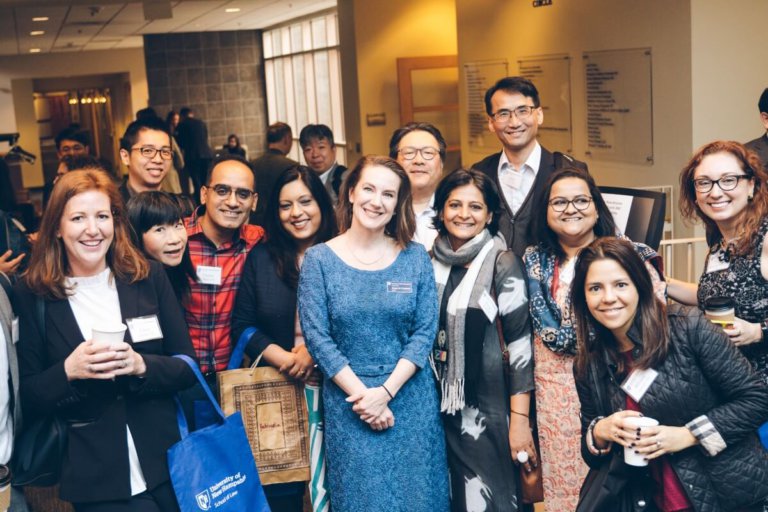
Innovation is not merely a trend or buzzword, but a concept that’s highly sought-after.
To stay relevant and keep up with the times, firms and companies must continuously innovate so they can penetrate global markets faster and grow their businesses.
With the rise of innovation come new products and patents, which is why intellectual property (IP) and patent law is a thriving field many aspiring lawyers want to get involved in.
According to World Intellectual Property Organisation, “As there are many players involved in facilitating the market success of an innovation, the effective use of the tools of IP will play an important role in reducing risk for the players involved, who may then be able to reap acceptable returns for their participation in the process.”
In the right academic law environment with supportive faculty and the opportunity for hands-on learning, future lawyers in intellectual property and patent law can thrive and become prepared for entry into the dynamic field.
At the University of New Hampshire (UNH) Franklin Pierce School of Law, consistently ranked in the top 10 for intellectual property law according to US News and World Report, the ability to keep up with current industry trends and provide students with a cutting-edge legal education sets this institution apart from other top-tier law schools.
John Orcutt, who has been a Professor of Law at the School for 18 years, said, “UNH Law’s strength has always been its ability to see what’s coming next with law and legal practice. When the school was founded in 1973, intellectual property was not a major focus in law schools.
“Yet the school recognized intellectual property’s coming importance with the rise of the information age. Today, the school focuses on intellectual property, technology, and data rights. This is a world characterized by constant change and increasing complexity.”

UNH School of Law
Learning through practical experience
At UNH Franklin Pierce School of Law, students are taught and mentored by expert faculty who support learners through their entire law education.
Alexandra J. Roberts, who teaches Trademarks & Deceptive Practices at UNH Franklin Pierce Law, explained how students graduate ready to become employable lawyers thanks to the specialized classes and practical learning opportunities.
“Our students are able to hit the ground running when they leave UNH Law because they’ve taken specialized IP courses not offered elsewhere and gained experience helping real clients with the oversight of attorneys in the Intellectual Property and Transactions Clinic.
“Every professor has also been a practitioner, and we teach with an eye toward preparing students to be lawyers, not just passing the bar or learning a set of doctrines.
“In my Entertainment Law class, for example, we don’t just read cases—we read endorsement contracts, agent agreements, jury instructions, expert witness declarations, insurance applications, trademark registrations, demand letters, and a host of other documents designed to expose students to litigation and transactional work in the entertainment industry.”
Vianey Romo de Vivar, an LLM graduate from Mexico, found the practical learning very beneficial to her career as a lawyer. “I remember this mock interview and mock trial, which were truly helpful, as they are the only exercises where someone actually tells you what you’re doing right, or wrong, and prepares you for the real thing.”

Vianey Romo de Vivar – LLM graduate
Supportive environment with excellent student resources
Students here receive a law education like no other, partly due to the supportive faculty and strong industry connections that make them employable.
International students also improve their English skills and build their understanding of the IP system in the US.
Carlos Eduardo Neves de Carvalho, LLM graduate originally from Brazil, said he decided to study at Franklin Pierce for three reasons: to become a specialist in IP, to improve his Legal English and conversation skills, and to have the chance to be connected with international students.
“Studying at UNH-FPL has enabled me to work in the intellectual property field of any global company and to network with international colleagues to protect the intellectual property rights of Brazilian companies. The LLM in IP Program is very extensive and it covers all areas of IP,” Carvalho said.
Upon graduation, he improved his English skills and was able to sit for the US Bar exam, and consequently work in an international law firm or global company where intellectual property was a strategic area.

Carlos Eduardo Neves de Carvalho – LLM graduate
He credits the network connections with international colleagues in the case of the registration of Trademarks and Patent abroad as helping him in his current job.
“I was already a practicing Mexican IP lawyer, limited by the scope of my jurisdiction, which happens a lot with international students,” said Romo de Vivar.
“However, during my time at UNH Franklin Pierce, I can truly say that I became an international IP lawyer; it opened my view, knowledge and criteria of the world of IP practice like a kaleidoscope.”
Jessica Jie Xu, from China, graduated with her LLM from Franklin Pierce in 2012 and echoed this sentiment. “I have been a trademark scholar and a litigator in China for 18 years. My classes in trademark law, copyright law, legal writing, and trademark filing in the US were the most useful classes for me.

Jessica Jie XU – LLM graduate
“I learned the difference of soft IP rights between China and the US, which helped me better understand my US clients and provide professional services for my Chinese clients. Legal writing significantly helped improve my English writing.”
For a law education that prepares you for the latest industry trends in intellectual property and patent law, UNH Franklin Pierce School of Law is the ideal place to further your career as a successful lawyer.
Follow UNH Franklin Pierce School of Law on Facebook, Twitter, YouTube, Instagram and LinkedIn
Liked this? Then you’ll love…
Leading law schools producing creative legal talent
UNH School of Law: Making the grade with top faculty in intellectual property







